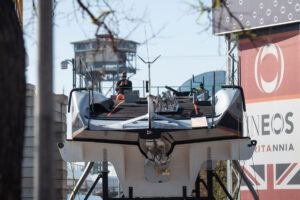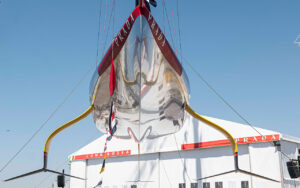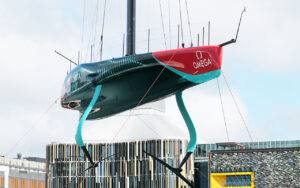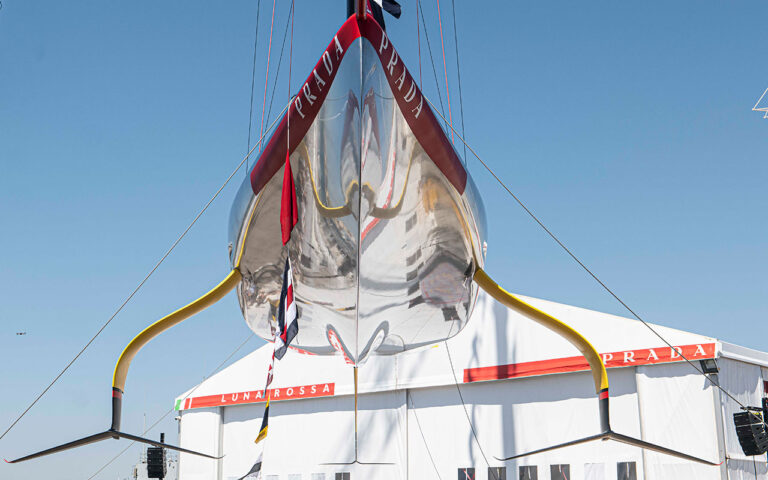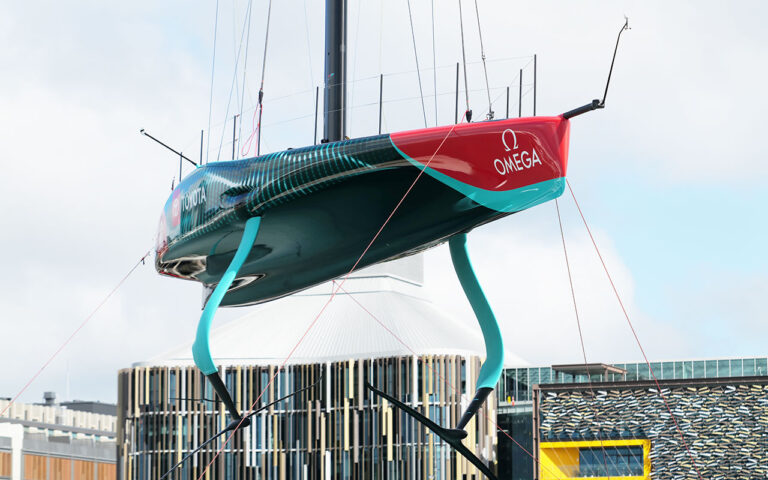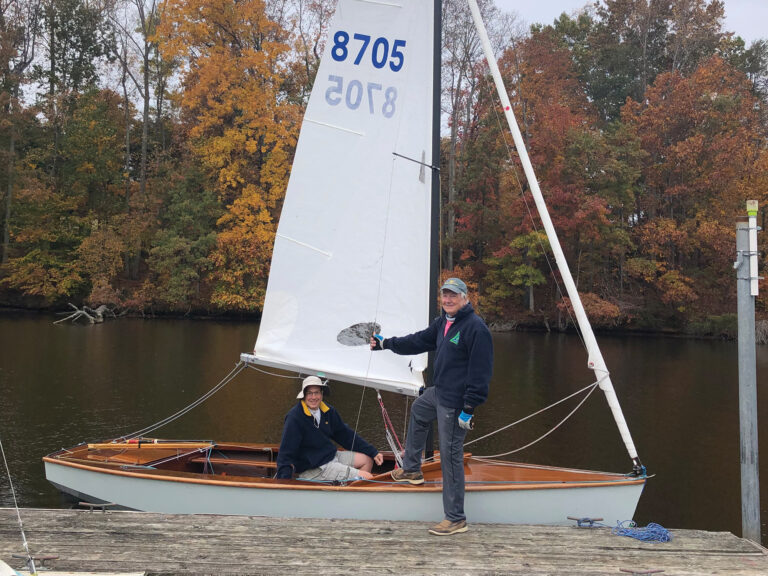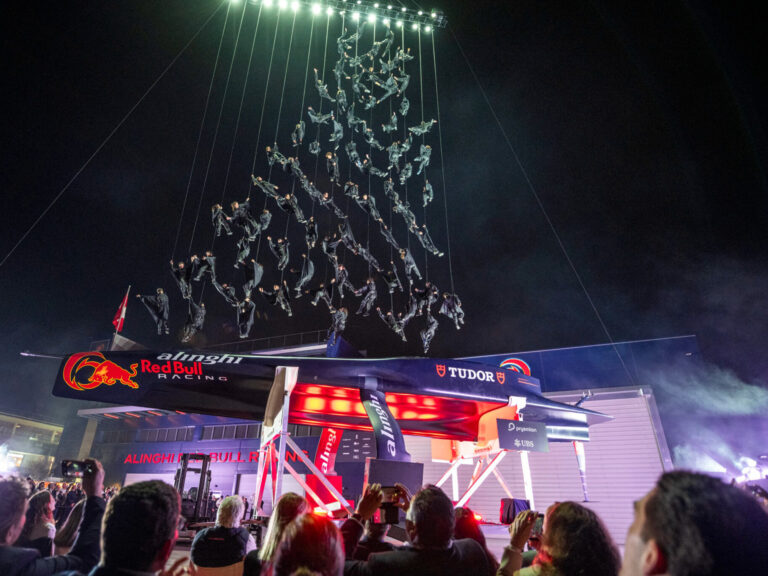Many sailors see the exclusion of multihulls from the Olympics regatta in November 2007 as a low-water mark for the sport. But it could also prove to be a crucial turning point that helped spur a more logical and forward-thinking method for managing the events and boats for future Olympic regattas.
The dropping of the Tornado was due to the intensely political and partisan process by which the ISAF General Council previously selected the events (one-person dinghy, men’s two-person keelboat, etc.) for future Olympics. When one event had to be dropped—either due to the inclusion of a new event, such as for 2004, when the Women’s Keelboat (Yngling) was brought into the fold, or, as in 2007, because the International Olympic Committee required the sport to drop from 11 to 10 medals—it set up a furious game of musical chairs, with the loser determined largely by the political savvy of the classes attached to each event (i.e., the International Tornado Class in the case of the open multihull, the Star for the men’s keelboat) and the members of the ISAF General Council with specific agendas (representatives were sent there to defend/support the classes where their countries has the best medal hopes).
The dropping of the fastest and, in some respects, most progressive of the Olympic classes from the docket was an appalling gaffe. Preventing such a mistake from happening again became a point of focus and led, in part at least, to the creation of the Olympic Commission, chaired by Phil Jones, the CEO of Yachting Australia. [It’s more than coincidence that Australia, home of multiple Olympic Tornado medalist Darren Bundock and beach cat whiz kid Glenn Ashby, was among the countries whose medal potential was most hurt by the omission of the multihull.]
The Olympic Commission is behind two key submissions, 096-10 and 097-10. The first, says Ben Barger, the chairman of ISAF’s Athletes Commission and, as such, a member of the Olympic Commission, “sets the pathway for how the equipment will be chosen every six years before the Olympic Games, how it will either be evolved equipment, retained equipment, or evaluated equipment.” A part of this submission is the creation of “core classes,” which would require a two-thirds vote of the ISAF Council, but then be locked in for at least two Olympic regattas (six and 10 years from the time of designation). Having some events—up to eight can carry core status at any one time—locked in would drastically streamline the selection process and create continuity while allowing for more regular change.
The second submission, 097, uses this pathway to outline the specific selections for the 2016 Olympic Games. “The reason why [the process this time is] different is because the Olympic Commission has made the submission through the Events Committee to council. So that means that instead of having all the events on the table the Olympic Commission already picked out the six events it thought were most important, which is in Vote 1,” says Barger. Those six core events are, one each for men and women, a board sport; a high-performance, two-person dinghy; and the Laser and Laser Radial. “Those were the first ones they wanted everybody to accept and agree upon.” The final four classes will be drawn from a pool of six including a second one-person dinghy for men and women, a mixed (coed) multihull, a mixed two-person dinghy, and a men’s and women’s keelboat.
Using a knockout system (which is fully defined in Submission 97) the Events Committee first eliminated the second women’s one-person dinghy. The final vote came down to the Finn vs. the Men’s Keelboat. According to Barger, the Finn won by a large margin.
“Is that what’s going to happen [Friday] in Council?” says Barger, alluding to the ultimate power of the council and it’s reputation for disregarding the Events Committee’s recommendation. “Council will have to decide that. There seems to be a popularity with the Finn class in ISAF right now.”
So, while things seem to be moving in the right direction, much is still left in the hands of the council. If Submission 96 is approved, says Barger, one other advantage will be that events voted in now will be somewhat immune to sniper-style attacks next May at the mid-year meeting in St. Petersburg, Russia, when it’s officially ratified.
If a slate is approved, says Barger, “we’ll probably see a lot of submissions from different countries on a new slate [at the 2011 mid-year meeting]. But it’s different in the fact that in May it’s allowed to be changed, but whoever makes a new submission has to name all 10 events at one time. So you can’t just pick apart [individual events].
“I would say it’s likely unless a large error is made in tomorrow’s voting, you’ll likely have whatever comes out of here to sick in May [2011].”
A few other points
• Women’s Match Racing is not part of the slate right now. It’s a women’s keelboat event with the determination of match vs. fleet to be made at a later date. The Elliott is the boat of choice for this discipline either way.
• As a windsurfer, Barger obviously has a bias when it comes to the board sport selection. [He said that he has abstained from many votes due to his status as an active Olympic-level athlete in one class]. But he had this to say about the impending kiteboard vs. windsurfer battle: “The only way to really evaluate [kiteboarding] was to put it within windsurfing in the submission. So it puts them against each other. But I honestly think it will make both better, because it will evaluate the criteria that kiteboarding has and it will be able to decide on the different pluses of minuses as it’s racing format it’s just getting established. There’s been lots of talk of a different format of racing or of asking for another medal specifically for kiteboarding because of the potential spectator appeal and the potential revenue. So kiteboarding has a very positive vibe at this meeting.”
• In my previous report I noted that I didn’t think of any Summer Olympic events that were mixed, i.e. men and women’s competing together on a team. I was mistaken. There was a mixed doubles Badminton event in 2008. Mixed doubles tennis will be debuting in the Olympics in 2012. This only indicates that the IOC is looking favorably upon these sports and it would behoove sailing to get in on this trend early.

